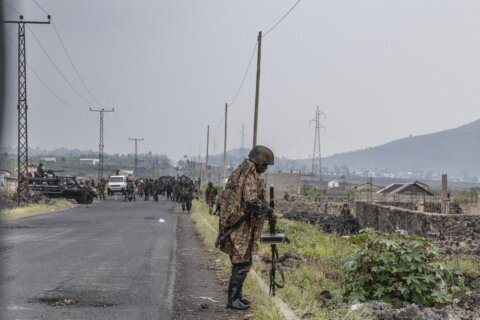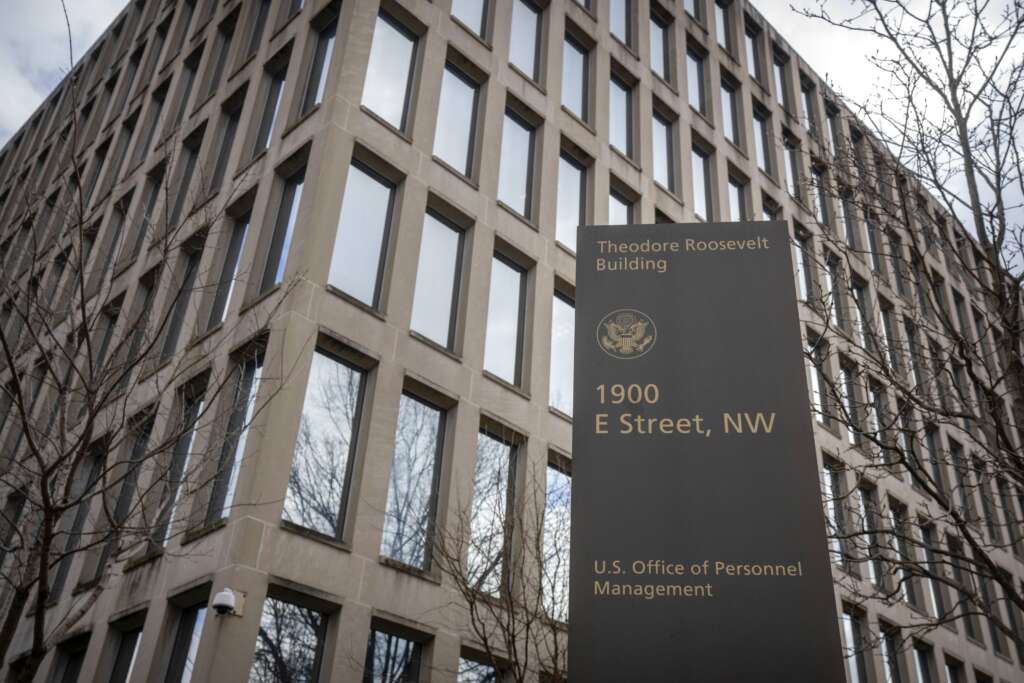PRAYAGRAJ, India (AP) — It’s late evening in the city of Prayagraj and the roadside vendors selling snacks are packing up their wares to shut for the night. Under the large fig trees, between two paved streets, a group of people is unpacking their bedding of brightly printed blankets. Using their bags as pillows and covering themselves from head to toe with the blankets to ward off cold and mosquitoes, they will spend the night there.
The massive, fluted tree trunks are painted with bright colorful patterns signaling Prayagraj’s preparation for the 45-day Maha Kumbh festival, during which tens of millions are expected to visit.
Hindu devotees will keep arriving in the north Indian city from across the country to bathe at the confluence of the Ganges, the Yamuna and the mythical Saraswati rivers. Many will sustain themselves with little more than their faith.
They sound cheerful, accepting the discomforts they have to put up with.
On the banks near the confluence, amidst bustling crowds, 61-year-old Om Prakash Dube from Ayodhya is sitting on a blanket spread over a plastic sheet on the ground.
“I eat little so that I do not have the need to visit the public toilets frequently,” said Dube, who has already spent a night in the open and is planning to stay another to catch the first two auspicious bathing days.
Several others sit with their belongings on plastic sheets. Some are eating simple meals brought from home, others lying down or chatting. Many, like Dube, will spend at least one night sleeping out in the open braving the cold with thin blankets and no mattresses.
“We would have liked to spend more time, but our daughter Saumya has her exams coming up,” said Preeti Gupta, who traveled with her husband and two children from Chhattisgarh. Her daughter Saumya, 16, is studying science at school.
Their 20-year-old son Sanidhya is studying electronics. All seem happy to be here.
A little farther, Nagavalli Gupta reads a prayer book while her husband sits cross-legged wearing a woolen cap, wrapped in a blanket. They are from Bengaluru in the southern state of Karnataka and have been on a pilgrimage for the past two months.
On Jan. 14, one of the most auspicious dates for bathing at the confluence, people who didn’t spend the night on the banks were out before 4 a.m., inching along tightly packed streets, some carrying bags on their heads. There was much jostling and families and friends struggled to keep together. Much could have gone wrong but somehow the crowds kept moving to the ghats, where they prayed and took a dip.
According to an official estimate, 35 million people bathed at the confluence on that day.
Copyright © 2025 The Associated Press. All rights reserved. This material may not be published, broadcast, written or redistributed.













